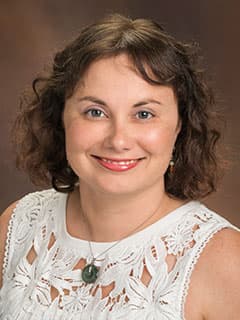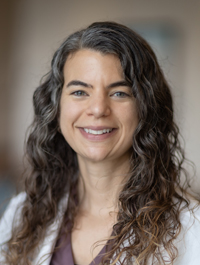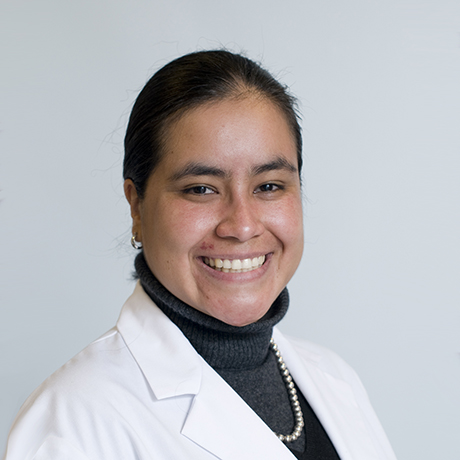ANA Member Spotlights

Jose Biller, MD, FACP, FAAN, FANA, FAHA

José Biller is a Professor of Neurology and Neurological Surgery and Chairperson of the Department of Neurology at Loyola University Chicago Stritch School of Medicine. Dr. Biller is American Board of Psychiatry and Neurology (ABPN) certified in Neurology and Vascular Neurology, and certified in Headache Medicine by the United Council of Neurologic Subspecialties.
Dr. Biller served as Director of the ABPN from 1994 to 2001, and President of the ABPN in 2001, and currently holds the title of Emeritus Director of the ABPN. He is Editor Emeritus of the Journal of Stroke and Cerebrovascular Diseases, past Chief-Editor of Frontiers in Neurology, and an editorial board member and reviewer for an array of other national and international journals and publications. He has published more than 385 peer-reviewed articles, over 155 book chapters, edited/authored 35 books, and presented more than 765 lectures around the world. Dr. Biller earned his medical degree from the School of Medicine at the University of the Republic in Montevideo, Uruguay, where he had post-graduate training in Internal Medicine. He then completed Residency in Neurology at Loyola University Chicago and a Cerebrovascular Research Fellowship at Wake Forest University, Bowman Gray School of Medicine. Dr. Biller was the recipient of the American Neurological Association Distinguished Neurology Teacher Award in 2013; the 2020 A.B. Baker Lifetime Award for Teaching in Neurology by the American Academy of Neurology; and the 2023 William M. Feinberg Award for Excellence in Clinical Stroke Award from the American Stroke Association.
Ana Cristancho, MD, PhD

Dr. Cristancho is an Assistant Professor in the Departments of Pediatrics and Neurology at the Children’s Hospital of Philadelphia and Perelman School of Medicine at the University of Pennsylvania. She was born in Caracas, Venezuela, and grew up in South Florida. She graduated from the University of Miami with a dual major in Biology and Philosophy. She completed her MD and PhD at the Perelman School of Medicine in the University of Pennsylvania. Her PhD was completed in the lab of Dr. Mitchell Lazar in Cell and Molecular Biology, studying transcription factors regulating adipocyte differentiation and acquiring expertise in biochemistry, molecular biology, and bioinformatics.
Dr. Cristancho completed her pediatrics and child neurology training at Children’s Hospital of Philadelphia. During her clinical training, she became interested in understanding why children affected by similar prenatal and perinatal injuries could have such a broad spectrum of developmental outcomes. Clinically, Dr. Cristancho specializes in Fetal and Neonatal Neurology. She completed her post-doctoral studies with Dr. Eric Marsh to develop and characterize clinically relevant models of neurodevelopmental brain injury. These were highly collaborative efforts with input from people with specializations in Maternal-Fetal Medicine, Psychiatry, Neonatology, Radiology, and Pathology.
Dr. Cristancho’s primary interest is in studying how normal brain development is disrupted by acquired brain injuries that are the most common causes of neurodevelopmental disability worldwide. Her team focuses on the role of epigenome dysregulation accounting for long-term brain injury because many epigenetic regulators cause neurogenetic forms of neurodevelopmental disorders and are also amenable to many therapeutic interventions.
Salvador Cruz-Flores, MD, MPH, FANA

Dr. Cruz-Flores joined Texas Tech University HSC EL Paso as tenured professor and founding chair of the Department of Neurology at Paul L Foster School of Medicine in 2013. He holds the Jim and Julie Cardwell Endowed Chair in Neurology. Prior to joining TTUHSCEP, he was a professor of neurology at Saint Louis University School of Medicine. He has over 25 years of experience in neurology, vascular neurology and neurocritical care. Dr. Cruz-Flores has over 390 combined peer-reviewed publications, abstracts, and book chapters. His scholarly work focuses on cerebrovascular diseases, critical care neurology, and racial disparities. He considers his greatest achievement the recruitment of a cadre of excellent neurologists that have made possible the creation of a Comprehensive Stroke Center, a neuroscience intensive care unit, an epilepsy monitoring unit, an ALS clinic and a neurology residency that has graduated 13 new neurologists to date. He is a Fellow of the American Heart Association (FAHA), the American College of Critical Care Medicine (FCCM), the American Academy of Neurology (FAAN), the American Neurological Society (FANA), the American College of Physicians (FACP), and the Neurocritical Care Society (FNCS). More recently, the American Association of Medical Colleges accepted him in the Council of Deans Fellowship and was bestowed the Chancellor’s Council Distinguished Teacher Award in the Texas Tech University System. He received his M.D. degree at the Universidad Autonoma de Nuevo Leon (UANL) , Mexico and his Master of Public Health (Epidemiology) at Saint Luis University School of Public Health. He completed Internal Medicine and Neurology at the UANL, and Neurology residency and Stroke and Neurocritical Care Fellowship at Saint Louis University in St. Louis Missouri.
Monica M. Diaz, MD, MS

Dr. Diaz is an Assistant Professor of Neurology in the Division of MS/Neuroimmunology at University of North Carolina at Chapel Hill. She is originally from Miami, Florida and completed her medical school at State University of New York-Downstate in Brooklyn, NY. She completed her neurology residency at Yale-New Haven Hospital and then a neuro-infectious/MS/neuroimmunology fellowship at University of California, San Diego.
Dr. Diaz has lived and worked in Peru intermittently since 2019 through an NIH Fogarty global health research fellowship and continues to lead studies in Peru with the goal of improving neurological outcomes in Latin America. Her current studies focus on epidemiology/risk factors for dementia, cognitive impairment in Peruvians living with HIV, and factors that increase the risk of epilepsy in Peru. She has a K23 from the NIH National Institute of Mental Health supporting a study that seeks to create a multimodal platform for early identification of HIV-associated neurocognitive disorders among people living with HIV in Latin America. She is the co-director of a bilateral neurology resident rotation between UNC and Universidad Peruana Cayetano Heredia in Lima, Peru. She is also the current Vice Chair of the Global Health section of the American Academy of Neurology.
Andres Fernandez, MD, MSEd

Dr. Fernandez is an Assistant Professor in the Department of Neurology at Thomas Jefferson University. He serves as the Neurology Clerkship Director and Co-Director of the Sidney Kimmel Medical College Scholarly Inquiry Track in Medical Education. He completed his Neurology Residency at the University of Miami, followed by Fellowships in Neurocritical Care at Columbia University and Critical Care EEG at Yale University. His interest in medical education led him to complete a Masters in Medical Education at the University of Pennsylvania and he is currently a Ph.D. student in Medical Education at the School of Health Professions Education (SHE) at Maastricht University in the Netherlands.
Pedro Gonzalez-Alegre, MD, PhD, FANA

Dr. Pedro Gonzalez-Alegre is a physician-scientist certified by the American Board of Psychiatry and Neurology and with subspecialty training in Movement Disorders/Neurogenetics. After completing his residency and fellowship training at the University of Iowa, he joined the faculty at that institution where he reached the rank of Associate Professor with tenure. In 2014, he was recruited to the Department of Neurology at the University of Pennsylvania. He has been elected to the Best Doctors in America list every year since 2009. He is the founding director of the Penn HD Center since 2015, gaining designation as a Center of Excellence of the HDSA (Huntington’s Disease Society of America) in 2016. He also launched a new Neurogenetics Clinic at Penn in 2015.
Dr. Gonzalez-Alegre has devoted significant efforts to education. He has been the advisor of several graduate students that successfully obtained their PhD, mentored numerous undergraduate and medical students, neurology residents and fellows, and participated in multiple local, national and international educational programs related to neurology. He was named Associate Director of the Neurology Residency Program at the University of Iowa in 2009, Residency Program Director and acting Vice-Chair for Education in 2012, Chair of the Seminar Committee and Member of the Executive Committee of the Interdisciplinary Program in Neuroscience at the University of Iowa in 2012. His educational efforts were rewarded by the 2009 and 2012 Medical Education Faculty Award in Neurology of the Carver College of Medicine at the University of Iowa and the 2014 Best Teacher Award from the Neurology Residents at UI.
Dr. Gonzalez-Alegre is a highly committed clinician-scientist who directs a laboratory devoted to the investigation of the neurobiological bases and therapeutics of dystonia. For his research efforts, funded through federal and private sources, he has been recognized with 2003 S Weir Mitchell Award of the American Academy of Neurology, the 2004 Junior Award for Excellence in Basic Science Research from the Movement Disorders Society, the 2012 Jon Stolk Award in Movement Disorders from the American Academy of Neurology, and the 2012 Stanley Fahn Award from the Dystonia Medical Research Foundation. He is also Co-Director for Clinical Programs of the Raymond G. Perelman Center for Cellular & Molecular Therapy at the Children Hospital of Philadelphia, involved in translational efforts to advance novel molecular therapies for various neurological diseases to early phase clinical trials.
Nicte Mejia, MD, MPH, FANA

Dr. Nicte Mejia is an Associate Professor of neurology at Harvard Medical School and Associate Neurologist at Massachusetts General Hospital, where she serves as Director of Neurology Community Health Diversity and Inclusion as well as Director of the Youth Neurology Education and Research Program. Dr. Mejia is passionate about advancing equity and justice through community-engaged partnerships
Dr. Mejia graduated medical school with honors from the Monterrey Institute of Technology. After conducting clinical research at Baylor College of Medicine, She trained at MGH/BWH/Harvard completing a Medicine internship, Neurology residency, Movement Disorders fellowship, Master degree of Public Health, postdoctoral fellowships in Neurostatistics & Neuroepidemiology and Mental Health Policy, and the Physician Leadership Development Certificate Program. Dr. Mejia also graduated the DSC Disparities Leadership Program, YW Boston LeadBoston Executive Leadership Program, and AAN Diversity Leadership Program.
Dr. Mejia works to advance equity through patient care, research, education, and administration. She lead the MGH Neurology Diversity Committee; am part of the MGH Executive Committee of Community Health and MGH Diversity Committee; Member of the Board of Directors of Boston Health Care for the Homeless Program; Associate of the Disparities Solutions Center; and Fellow of the American Academy of Neurology. Her work has been recognized with the HMS Harold Amos Faculty Diversity, Boston YMCA Achievers, Dominican Medical College New England & Hispanic Health Professionals Association Outstanding Healthcare Professional, MGH Service Excellence Leadership Honorable Mention, MGH Ernesto Gonzalez, HMS Scholars in Medicine Excellence in Student Mentoring, and the AAN AB Baker Teacher Recognition awards.
Adys Mendizabal, MD, MS

Dr. Adys Mendizabal is an Assistant Professor in the Department of Neurology at the University of California, Los Angeles (UCLA). She earned a Bachelor of Science in Psychobiology from the University of Miami and completed medical school at the Lewis Katz School of Medicine at Temple University. While in medical school, she also earned a Master of Arts in Urban Bioethics, focusing on social determinants of health in urban communities. She completed her neurology residency at the Hospital of the University of Pennsylvania. As a neurology resident, she developed a health equities curriculum for residents while participating in health services research and community engagement efforts. She recently completed a movement disorders fellowship at UCLA and a Master of Science in Health Policy and Management from the Fielding School of Public Health.
She is currently a recipient of the Huntington Disease Society of America (HDSA) Berman Topper Career Development Award. Her research focuses on racial and ethnic disparities in Huntington’s Disease (HD) care. It has identified racial disparities in disease disability and delays in diagnosis among Black individuals with HD. She advocates for health equity in HD by educating neurologists, HD specialists, and industry on the existence of HD in minoritized communities and the limitations of prior and current HD research in identifying HD in these communities, and systematically evaluating their needs. She also provides actionable considerations for drug development, clinical trial design, and health policy, that can ensure equitable outcomes for HD and other neurological disorders. She’s currently developing projects to better understand barriers to specialized HD care among Latinx patients, while also improving sociodemographic data collection across HD centers of excellence.
In addition to health services research in HD, her work has examined the relationship between Adverse Childhood Experiences (ACEs) and healthcare outcomes in adults with neurological diseases. Her pilot work on ACEs suggests that childhood adversity may be more prevalent in adults with neurological conditions than in general US population estimates. Furthermore, she identified that ACEs are associated with higher healthcare utilization in adults with neurological diseases and a variable associated with higher depression and anxiety in adults with different neurological disorders.
